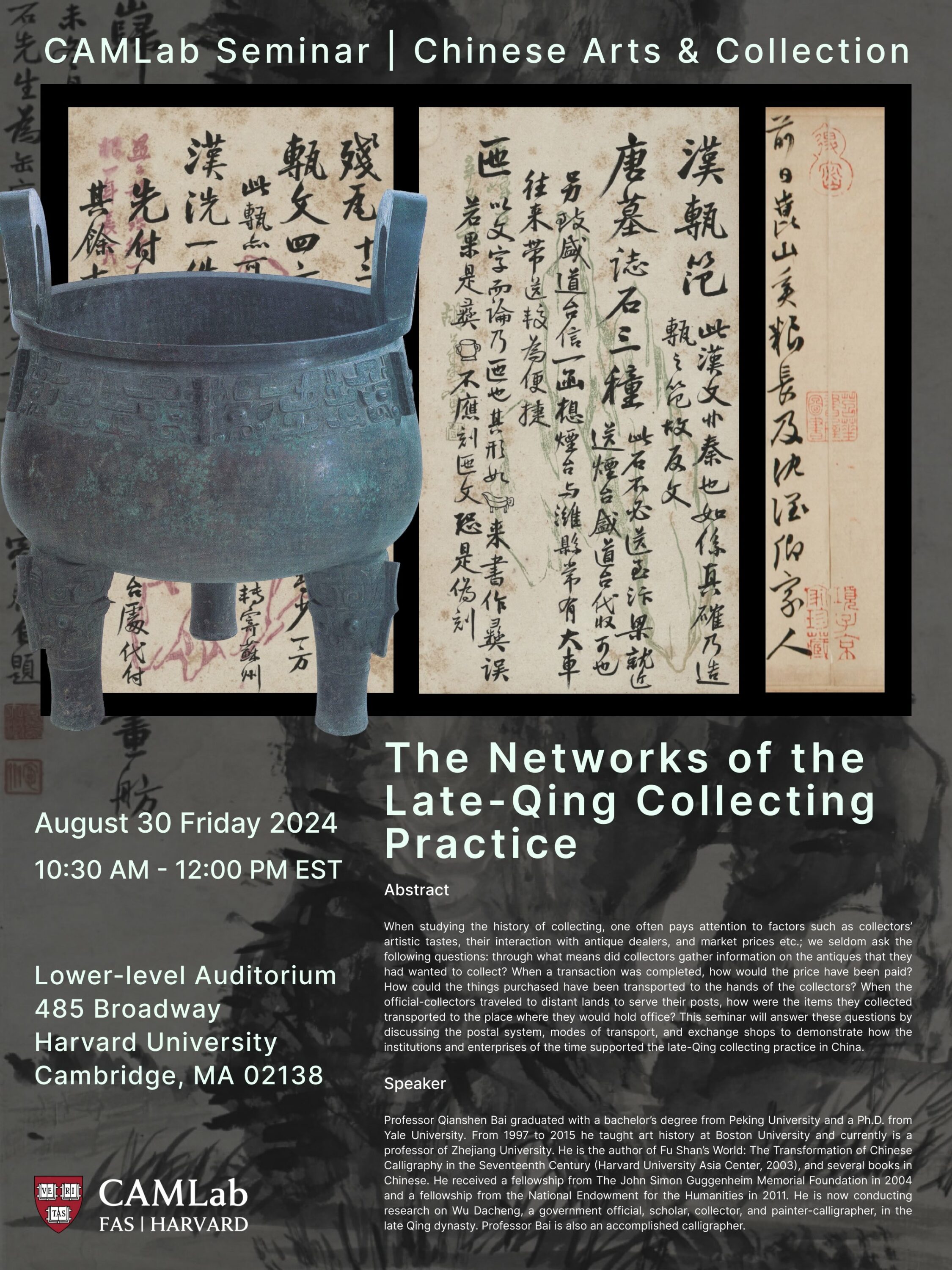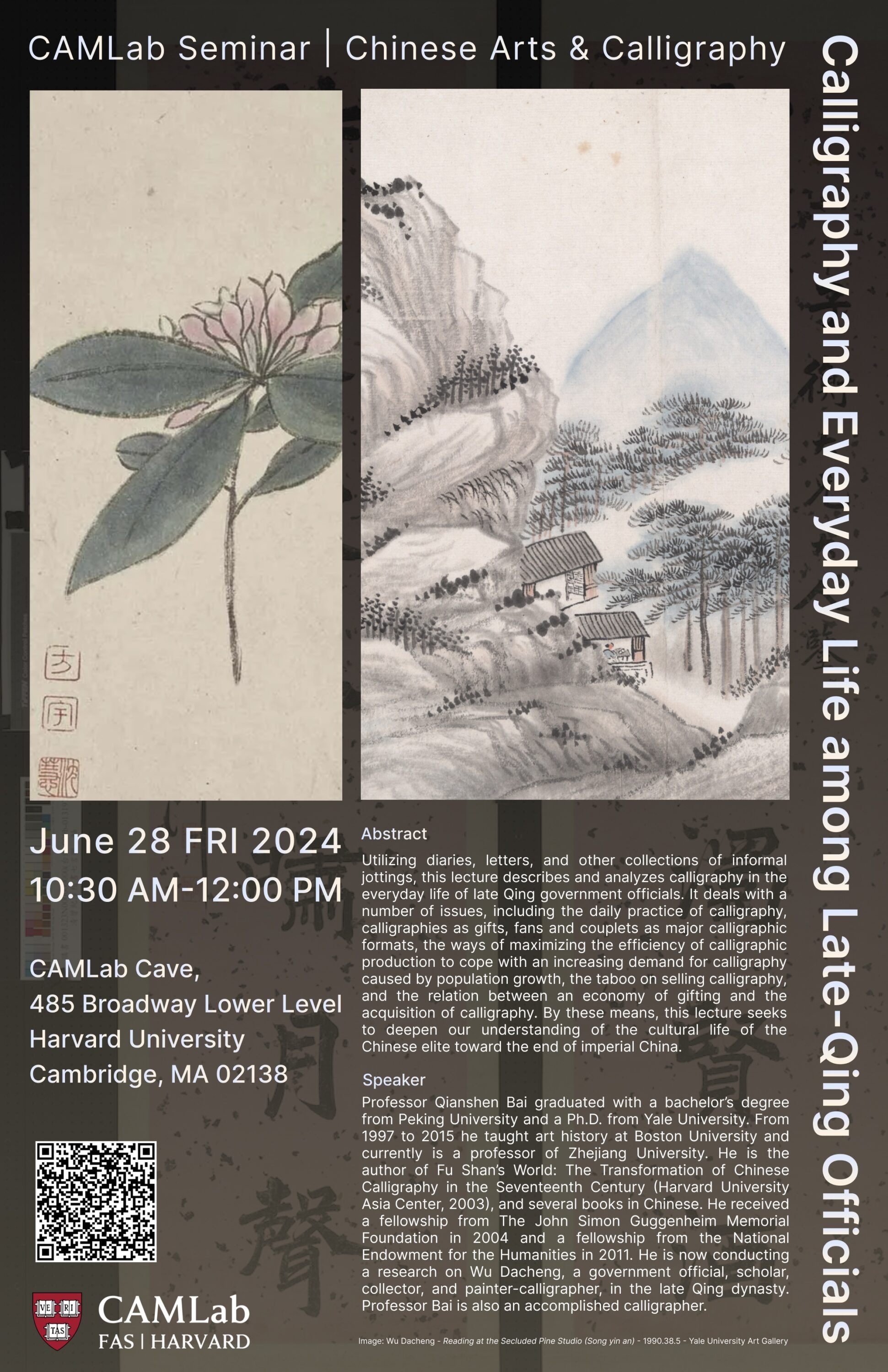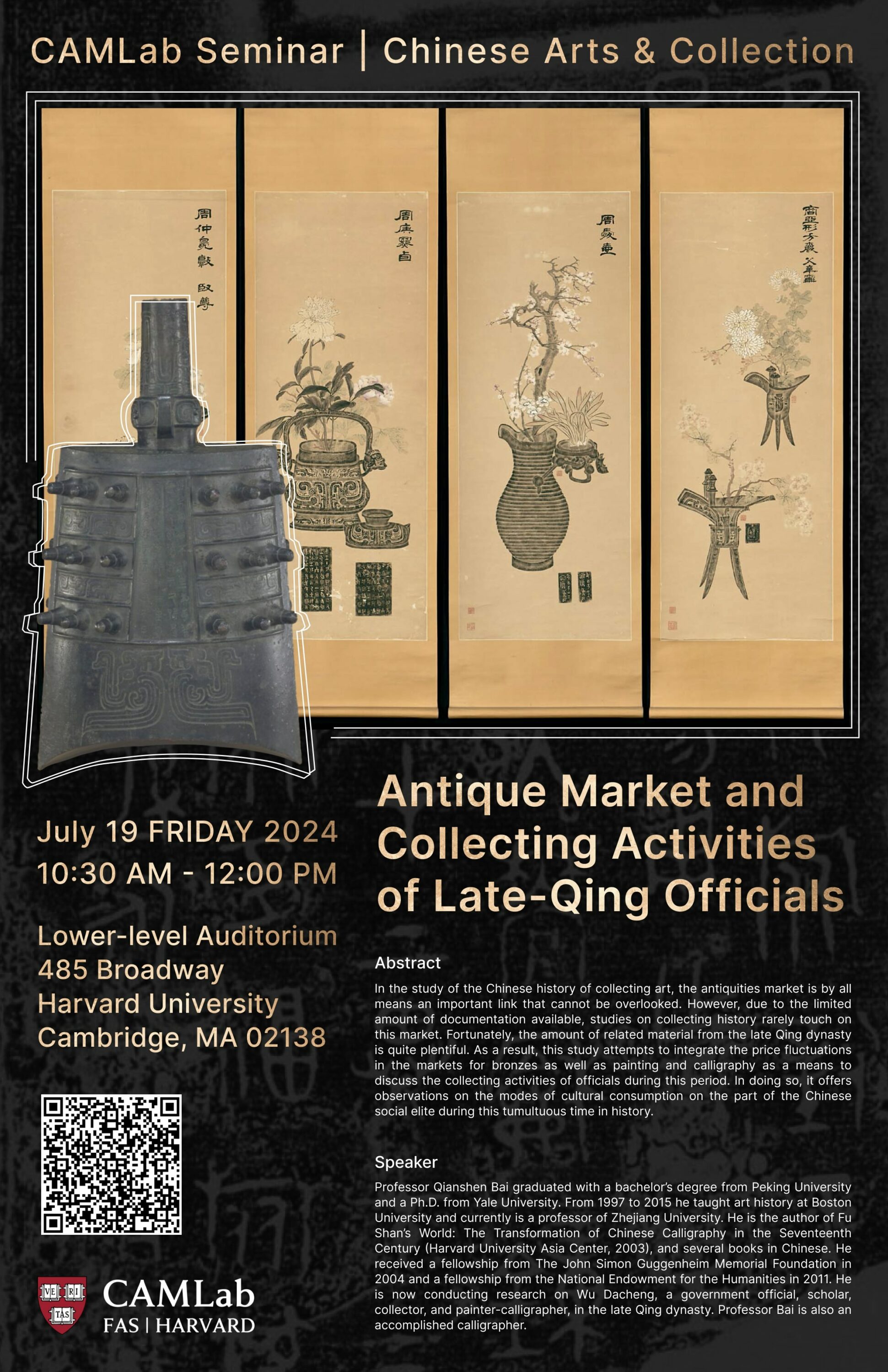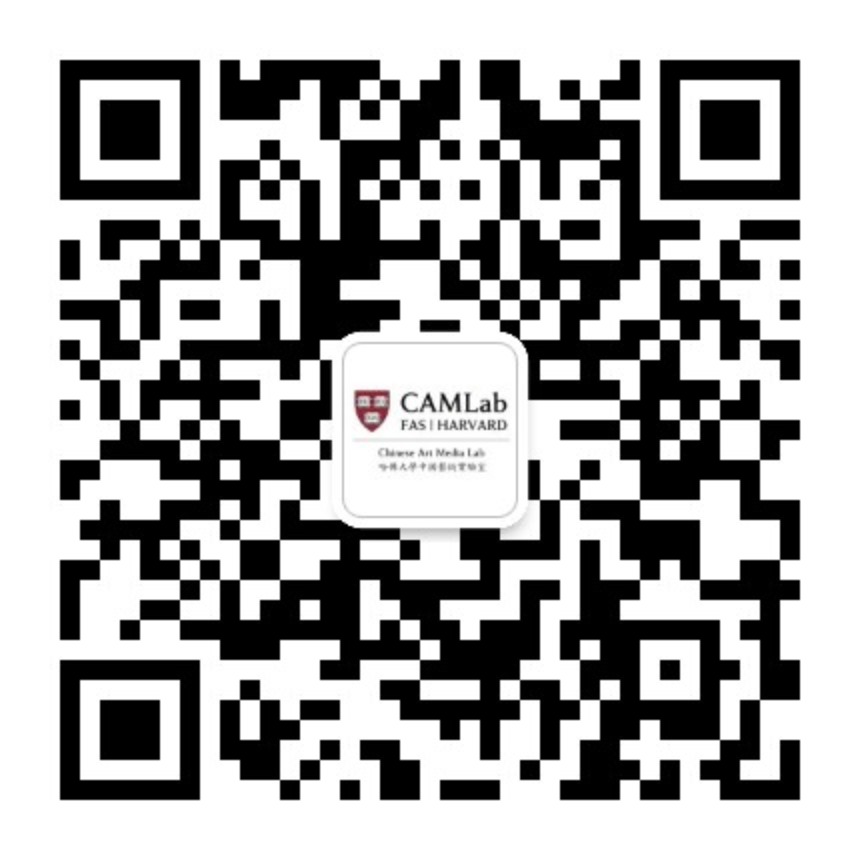Aug 30 Friday 10:30 am -12:00 pm EST
Lower-level Auditorium, 485 Broadway, Harvard University, Cambridge, MA 02138
Professor Qianshen Bai
Abstract:
When studying the history of collecting, one often pays attention to factors such as collectors’ artistic tastes, their interaction with antique dealers, and market prices etc.; we seldom ask the following questions: through what means did collectors gather information on the antiques that they had wanted to collect? When a transaction was completed, how would the price have been paid? How could the things purchased have been transported to the hands of the collectors? When the official-collectors traveled to distant lands to serve their posts, how were the items they collected transported to the place where they would hold office? This seminar will answer these questions by discussing the postal system, modes of transport, and exchange shops to demonstrate how the institutions and enterprises of the time supported the late-Qing collecting practice in China.
Bio:
Professor Qianshen Bai graduated with a bachelor’s degree from Peking University and a Ph.D. from Yale University. From 1997 to 2015 he taught art history at Boston University and currently is a professor of Zhejiang University. He is the author of Fu Shan’s World: The Transformation of Chinese Calligraphy in the Seventeenth Century (Harvard University Asia Center, 2003), and several books in Chinese. He received a fellowship from The John Simon Guggenheim Memorial Foundation in 2004 and a fellowship from the National Endowment for the Humanities in 2011. He is now conducting research on Wu Dacheng, a government official, scholar, collector, and painter-calligrapher, in the late Qing dynasty. Professor Bai is also an accomplished calligrapher.
Aug 30 Friday 10:30 am -12:00 pm EST
Lower-level Auditorium, 485 Broadway, Harvard University, Cambridge, MA 02138
Professor Qianshen Bai
